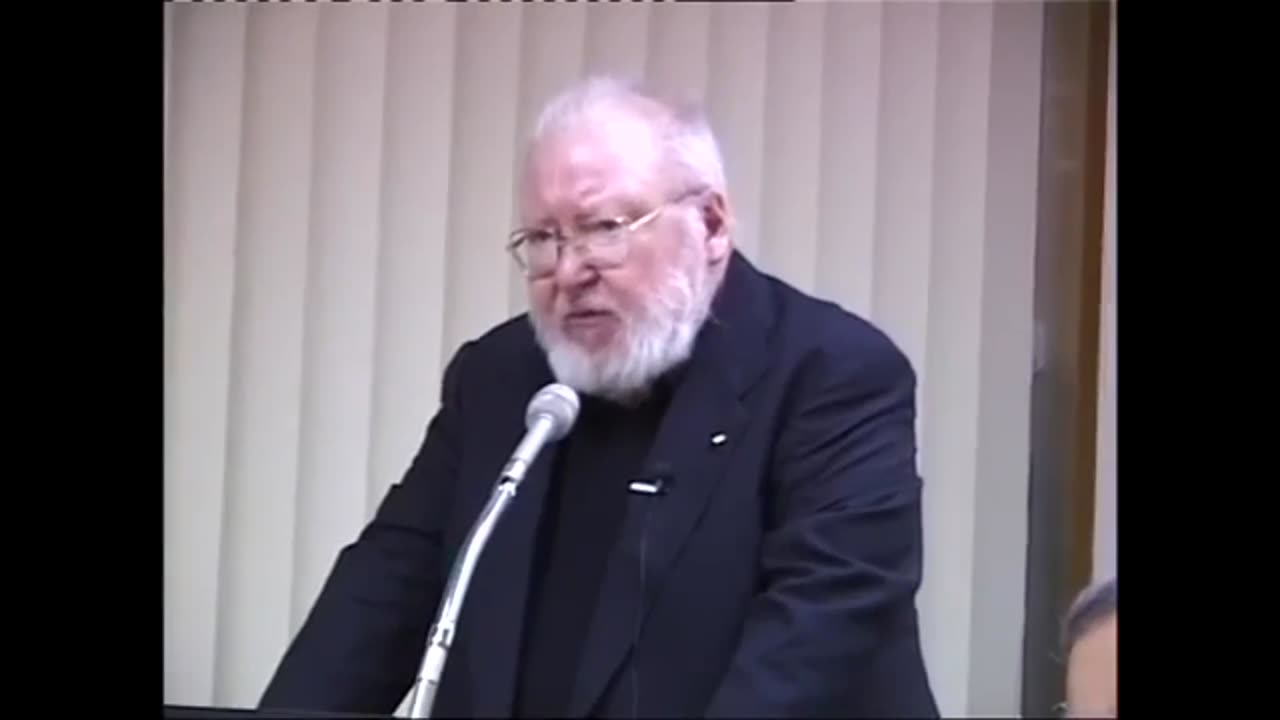Premium Only Content

Padraic McGuinness - Multiculturalism and Australian Identity
SUMMARY:
------------------------------
I was genuinely excited watching Paddy McGuinness unpack multiculturalism and what it has meant for Australian identity. A former economist and long‑time commentator, Paddy mixes sharp historical observation with wry, personal storytelling — starting with surprising discoveries in Balmain’s rowing club honour board and the real mix of southern and central European names, to memories of Chinese market gardeners and the sectarian split between Irish and British identities. He argues that while multiculturalism is desirable in principle, the term has become overloaded and some policy approaches have been unhelpful. Pivoting to the First World War, he traces much of Australia’s anti‑non‑Anglo prejudice (especially anti‑German sentiment) to that era. Throughout he stresses that many migrant families established themselves, often losing original languages but becoming fully part of Australia. This talk is a thoughtful, nuanced look at how Australia has always been more diverse than the ‘monocultural’ myth suggests, and why we need clearer, practical thinking about what multiculturalism should mean today. Highly recommended for anyone interested in history, identity and immigration policy.
RUMBLE DESCRIPTION:
-----------------------------------
Hey everyone — do yourself a favour and watch this classic talk by Padraic “Paddy” McGuinness on multiculturalism and Australian identity. Paddy, who’s worked as an economist in England and France and lectured at the University of London, brings a lifetime of observation and commentary to an honest, often witty examination of what multiculturalism has meant — and what it should mean — in Australia.
In this talk Paddy starts locally: he’s struck by the diversity hidden in Balmain’s old rowing club honour board, with many Central and Southern European names where you might expect only Anglo‑Celtic ones. He recalls the sectarian divides between Irish and British communities, the visibility of Chinese market gardeners during the gold rush era, and how migrant families became established over generations (even when the original language faded). Importantly, he distinguishes between the admirable ideal of multiculturalism and the muddled, sometimes problematic ways the term has been used in policy and public life. He also points to the First World War as a pivotal moment that shaped prejudice against non‑Anglo Europeans — especially anti‑German feeling.
This is a thoughtful, nuanced perspective — perfect for people who want history mixed with contemporary relevance. If you enjoyed it, like, share and leave a comment with your thoughts on multiculturalism in your part of Australia. Subscribe for more talks on identity, history and public policy.
Further reading: check archives of the Sydney Morning Herald and histories of Balmain for lots of fascinating local detail.
⚠️ CONTENT DISCLAIMER ⚠️
The views, opinions, and statements expressed in this video are those of the individual speaker(s) and audience members. They do not necessarily reflect the views, opinions, or positions of Western Heritage Australia or its affiliates.
This content is presented for educational and informational purposes as well as to facilitate public discourse on important social and political issues. We provide a platform for diverse Australian voices to be heard, to assist the public in forming their own informed opinions.
Western Heritage Australia does not endorse, verify, or take responsibility for the accuracy of statements made by speakers. All claims, statistics, and opinions remain the responsibility of the original speaker. Viewers are encouraged to conduct their own research and consult multiple sources when forming opinions on these topics.
This video may contain strong political opinions, controversial viewpoints, strong language, or mature themes. Viewer discretion is advised.
-
 16:04
16:04
Mrgunsngear
17 hours ago $15.81 earnedMcCoy 12ga Single Shot Shotgun Test 👀
92K4 -
 37:47
37:47
Welker Farms
1 day ago $2.22 earnedWEIGHT and COST Finally Revealed! Monster BIG BUD!
7.11K8 -
![I Can’t Believe How INTENSE This Got! | [REC] (2007) Reaction](https://1a-1791.com/video/fwe2/5e/s8/1/k/L/j/r/kLjrz.0kob-small-I-Cant-Believe-How-INTENSE-.jpg) 26:54
26:54
SouthernbelleReacts
2 days ago $9.91 earnedI Can’t Believe How INTENSE This Got! | [REC] (2007) Reaction
15.7K2 -
 10:00
10:00
It’s the Final Round
18 hours ago $0.88 earned💰NFL Week 7 Best Bets🔥Player Prop Picks, Parlays, Predictions FREE Today October 19th
13.4K1 -
 15:35
15:35
Demons Row
14 hours ago $2.01 earnedThe Worst Sgt-at-Arms I Ever Met 💀🔥 (and the Mistakes I Made as One)
17.2K4 -
 9:34
9:34
Sideserf Cake Studio
1 day ago $1.16 earned484 Lego Bricks. 1 Hyperrealistic Cake.
8.65K1 -
 22:42
22:42
marcushouse
1 day ago $5.26 earnedMassive Surprises From Starship Flight 11 Revealed! 🤯
12.4K8 -
 14:08
14:08
Forrest Galante
11 hours agoPrivate Tour Of the World's Most Expensive Pet Show
139K10 -
 13:50
13:50
Nikko Ortiz
21 hours agoStop Hurting Yourself For Views.
19.3K12 -
 2:07:06
2:07:06
Side Scrollers Podcast
1 day agoDiaper Furry Streamer Gets ONLY ONE DAY Suspension + Hasan PLAYS VICTIM + More | Side Scrollers
47.8K23